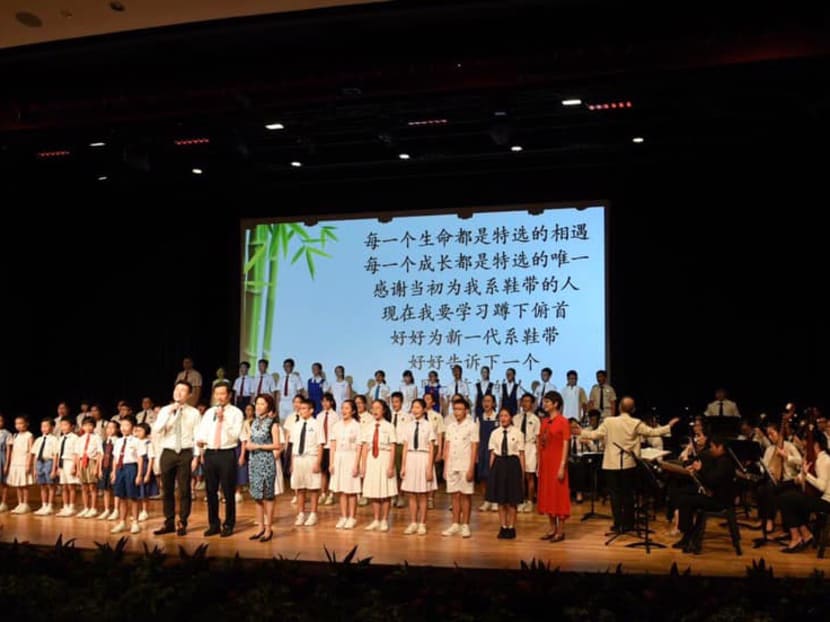SAP school students each receive S$300 more in funding a year: Ong Ye Kung
SINGAPORE — Students in Special Assistance Plan (SAP) schools each receive funding of about S$300 to develop their proficiency and interest in Chinese language-related studies.

Education Minister Ong Ye Kung (front row, second from right) at the 40th anniversary of the Special Assistance Plan (SAP) programme. Mr Ong said that SAP schools are there to allow a core group of Singaporean Chinese to develop a deep understanding of Chinese culture and history.
SINGAPORE — Students in Special Assistance Plan (SAP) schools each receive funding of about S$300 to develop their proficiency and interest in Chinese language-related studies.
This is on top of the baseline average funding of about S$15,000 a year given to each student in every secondary school.
Education Minister Ong Ye Kung said this on Friday (March 1), in response to a question from Mr Louis Ng, Member of Parliament for Nee Soon Group Representation Constituency, on how much funding non-SAP secondary schools and those offering SAP receive from the ministry.
Last Saturday, at the 40th anniversary of the SAP programme, Mr Ong said that SAP schools still have a role in Singapore, as a core group of Singaporean Chinese would have a chance of developing a deep understanding of Chinese culture and history.
He had also acknowledged that some have questioned the relevance of SAP schools, with students lamenting that they lack opportunities to make friends with people from other communities.
On Friday, Mr Ong reiterated his position that SAP schools continue to be relevant, as it is part of Singapore’s approach to allow every community to preserve and practise their cultures.
“Countries around us are catching up (with us) or surpassing us in teaching their people multiple languages. We should preserve our programmes and institutions to develop biliterate and bicultural talent at this crucial point in history,” he added.
Mr Ong also said that students in SAP schools receive lower funding on an individual basis due to the economies of scale derived from the larger number of Chinese students.
Students in the Normal (Technical) stream, as well as those in Crest Secondary School and Spectra Secondary School, receive 30 per cent to 50 per cent more resources apart from the baseline provision of S$15,000. Both schools are specialised schools for Normal Technical students.
More resources are also provided for students in specialised programmes, such as the English, Chinese, Malay and Tamil language elective programmes.
For instance, the Ministry of Education provides more than S$3,000 a year for each secondary school student in the Malay language elective programme.








